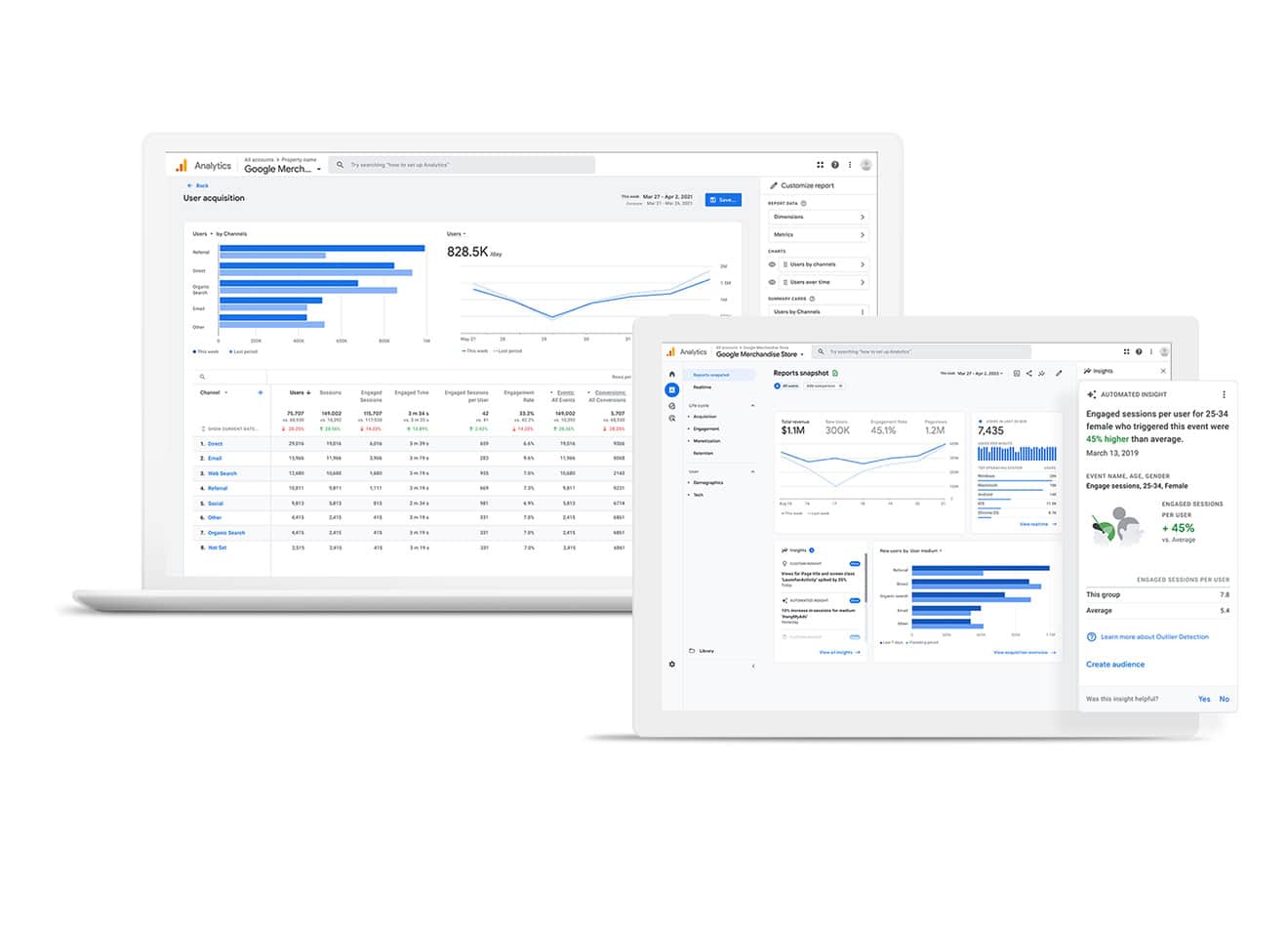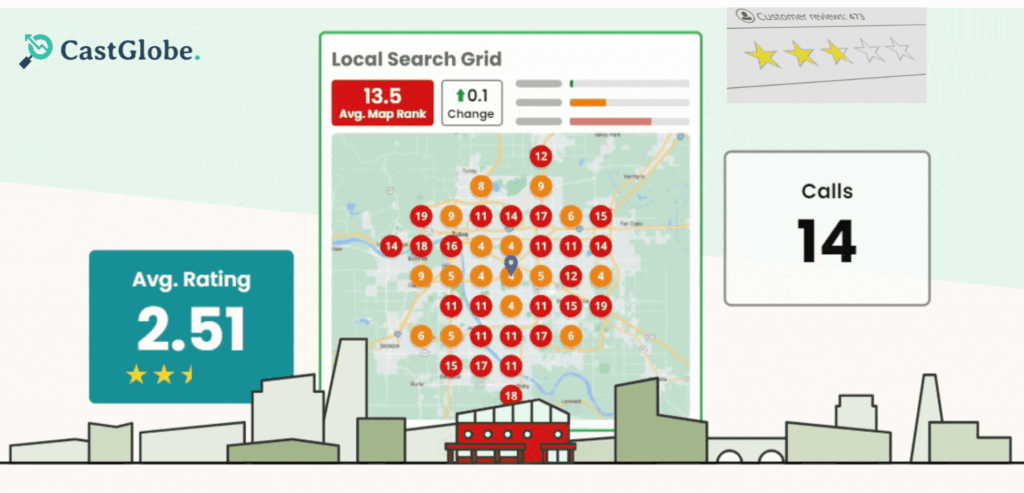A Complete Guide to Mastering the Digital Marketing Landscape In order to succeed in the fast-paced digital world of today, businesses need to be able to navigate a complex landscape. Understanding the subtleties of digital marketing is more important than ever due to the growth of online platforms and the growing dependence on digital communication. From comprehending the digital landscape to assessing success, this article will examine the fundamental elements of an effective digital marketing strategy. Because of shifting consumer habits and technology breakthroughs, the digital landscape is always changing. Understanding the newest tools & trends is essential for communicating with your audience in an effective manner.
Key Takeaways
- The digital landscape is constantly evolving and businesses need to stay updated on the latest trends and technologies.
- A comprehensive digital strategy should align with the overall business goals and target audience needs.
- Data and analytics play a crucial role in understanding customer behavior and making informed business decisions.
- Building a strong online presence involves creating a user-friendly website and engaging with customers on social media platforms.
- Creating engaging content is essential for capturing and retaining the attention of the target audience.
Every channel in the digital ecosystem, such as social media, search engines, email, and websites, offers a different set of chances for communication and engagement. Also, it’s critical to comprehend your target audience. Who are they?
What do they like? Businesses can find their ideal clients & adjust their marketing strategies by carrying out in-depth market research. This information not only aids in creating pertinent messaging but also in selecting the most appropriate channels for efficiently reaching prospective customers. Clearly defining goals.
Establish specific goals first, such as raising sales, lead generation, or brand awareness. These objectives ought to be time-bound, relevant, quantifiable, achievable, & specific (SMART). The Correct Channels to Use. Finding the channels that will best support your strategy is crucial after establishing your goals. Think about the websites & content consumption habits of your target audience.
| Metrics | Data |
|---|---|
| Number of Experts | 15 |
| Topics Covered | 10 |
| Duration | 6 hours |
| Number of Modules | 5 |
Agility is the key to success. You can reach customers through multiple touchpoints with a multi-channel strategy, which frequently produces the best results. Also, you can maintain your agility in a changing digital environment by periodically reviewing and modifying your strategy in light of performance metrics. Any effective digital marketing strategy is built on data.
Through the utilization of analytics tools, companies can acquire important knowledge about the preferences, behavior, & engagement patterns of their customers. With the use of this data, marketers can improve campaign performance and make well-informed decisions. Conversion rates, user demographics, & website traffic can all be monitored with the use of tools like Google Analytics. Through the examination of this data, companies can determine which marketing initiatives are producing outcomes and which ones require enhancement.
A/B testing various approaches can also give you more information about what appeals to your audience, which will help you keep improving your strategy. A strong online presence is essential for any company hoping to thrive in the digital sphere. This entails developing a polished website that forms the basis of your online persona. To increase visibility, your website should be easy to use, visually appealing, & search engine optimized.
Keeping up active accounts on pertinent social media sites is crucial in addition to having a well-designed website.
In addition to facilitating direct communication with clients, these channels also act as venues for content sharing and brand advocacy. By interacting with your audience on social media, you can encourage community and loyalty, which will eventually increase conversions. In the realm of digital marketing, content is paramount. In addition to drawing visitors, interesting, high-quality content also keeps them coming back. Knowing the needs and interests of your audience is crucial to producing engaging content.
Surveys, feedback forms, & social media interactions can all help achieve this. Various content formats, including podcasts, infographics, videos, and blog posts, can increase engagement and accommodate a range of tastes.
Also, adding narrative components can help your content become more memorable and relatable.
To increase visibility, don’t forget to naturally incorporate pertinent keywords into your writing to optimize your content for search engines. Applying Successful Digital Marketing Strategies. After you’ve established a strong foundation, it’s time to put your strategy into practice with efficient digital marketing techniques. Advertising with Pay Per Click for Quick Results.
Pay-per-click (PPC) advertising is one strategy that can produce results right away by putting your ads in front of people who are actively looking for similar goods or services. Using social media to build relationships. Another effective tool that enables companies to establish a personal connection with their audience is social media marketing.
Brands can cultivate relationships that promote loyalty by sharing insightful content and interacting with followers via messages and comments. Email marketing for lead nurturing. Another very successful strategy is email marketing; tailored email campaigns can nurture leads and promote repeat business. An important factor in the success of your digital marketing campaigns is user experience, or UX.
A smooth user experience guarantees that users can navigate your app or website without experiencing any difficulties. User satisfaction is strongly impacted by elements like mobile responsiveness, page load speed, and intuitive design. Consider using usability testing to find customer journey pain points in order to improve UX. You can learn about areas that need improvement by getting input from actual users.
Also, you can direct users toward desired actions, like purchasing something or subscribing to a newsletter, by placing obvious calls-to-action (CTAs) throughout your website. The last phase in becoming an expert in the field of digital marketing is to measure and assess the effectiveness of your plan. You can effectively monitor your progress by setting up key performance indicators (KPIs) that are in line with your objectives. Typical KPIs include return on investment (ROI), social media engagement metrics, website traffic, and conversion rates.
You can determine what is and is not working by routinely analyzing these metrics. Utilize this information to inform any necessary changes to your approach. Remember that digital marketing is a continuous process; maintaining your company’s flexibility and responsiveness to shifts in consumer preferences or industry trends will set it up for long-term success.
In conclusion, navigating the digital marketing landscape necessitates a thorough comprehension of a number of elements, including creating a solid strategy, utilizing data analytics, & improving user experience. Businesses can develop a strong online presence and successfully interact with their target audience by concentrating on these important areas. Remember that success takes time as you start your digital marketing journey. It necessitates ongoing education, strategy adaptation, and improvement based on performance indicators.
To improve your digital marketing efforts and produce significant business outcomes, begin putting these insights into practice right now. Are you ready to advance your digital marketing strategy? Get professional advice catered to your particular business requirements by getting in touch with us at GoogleADAuthority . com!
If you are looking for digital strategy experts to help with your carpet cleaning business, you may want to check out this article on carpet cleaning marketing in Reno, Nevada. This article provides valuable insights and tips on how to effectively market your carpet cleaning services in the Reno area. By working with digital strategy experts who understand the local market, you can create a customized marketing plan that will help you reach more customers and grow your business.
FAQs
What is a digital strategy expert?
A digital strategy expert is a professional who specializes in developing and implementing strategies to help businesses achieve their goals through digital channels. This can include areas such as online marketing, social media, website optimization, and overall digital transformation.
What are the key responsibilities of a digital strategy expert?
Key responsibilities of a digital strategy expert may include conducting market research, analyzing data, identifying target audiences, developing digital marketing campaigns, optimizing websites for search engines, and staying updated on the latest digital trends and technologies.
What skills are required to become a digital strategy expert?
Skills required to become a digital strategy expert may include proficiency in digital marketing tools and platforms, data analysis, strategic thinking, creativity, communication skills, and the ability to adapt to rapidly changing digital landscapes.
How can a business benefit from hiring a digital strategy expert?
A business can benefit from hiring a digital strategy expert by gaining access to specialized knowledge and expertise in digital marketing and online business strategies. This can help the business to reach and engage with their target audience more effectively, increase brand visibility, and ultimately drive business growth.
What are some common challenges faced by digital strategy experts?
Common challenges faced by digital strategy experts may include keeping up with rapidly evolving digital technologies, navigating complex digital landscapes, and effectively measuring the impact of digital strategies on business outcomes. Additionally, they may also face challenges in aligning digital strategies with overall business goals and objectives.










